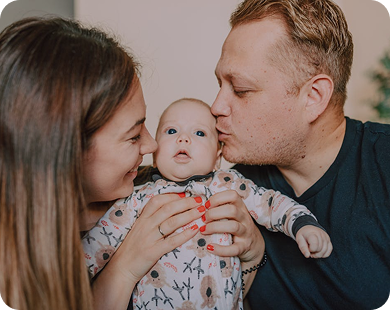Egg sharing can be a wonderful opportunity to help another family while reducing your own treatment costs, but it's not suitable for everyone. Understanding the medical criteria that may exclude you from egg sharing programs helps you make informed decisions about your fertility journey and explore alternative treatment options that better suit your specific situation.
Understanding Egg Sharing Medical Exclusions
Egg sharing programs have strict medical guidelines designed to protect both donors and recipients. These criteria exist to ensure the highest success rates and minimize health risks for everyone involved. If you're considering physical preparation for sharing eggs, understanding these exclusions helps you determine whether this path aligns with your medical profile.
The screening process evaluates multiple factors including your reproductive health, genetic background, psychological readiness, and overall medical history. These assessments aren't meant to discourage you but rather to ensure the safest and most effective treatment outcomes.
Age-Related Medical Exclusions
Age represents one of the most significant factors in egg sharing eligibility. Most programs have strict age limits that reflect the natural decline in egg quality and quantity over time.
| Age Range | Egg Sharing Eligibility | Key Considerations |
|---|---|---|
| Under 21 | Generally excluded | Insufficient emotional and physical maturity |
| 21-35 | Typically eligible | Optimal egg quality and quantity |
| 36-39 | Case-by-case evaluation | Declining ovarian reserve, increased genetic risks |
| 40 and above | Usually excluded | Significantly reduced egg quality and success rates |
The upper age limit exists because age significantly impacts fertility outcomes. After 35, chromosomal abnormalities increase substantially, and ovarian reserve typically declines. These factors affect both your own treatment success and the quality of eggs available for sharing.
Ovarian Reserve and Hormonal Exclusions
Your ovarian reserve directly impacts egg sharing eligibility. Clinics evaluate several hormonal markers to assess whether you have sufficient eggs for both your own treatment and sharing.
| Test | Exclusion Criteria | Why It Matters |
|---|---|---|
| AMH (Anti-Müllerian Hormone) | Below 1.2 ng/mL | Indicates low ovarian reserve |
| FSH (Follicle Stimulating Hormone) | Above 10-12 mIU/mL | Suggests diminished ovarian function |
| Antral Follicle Count | Fewer than 8-10 follicles | Predicts poor response to stimulation |
| Estradiol | Elevated baseline levels | May indicate ovarian dysfunction |
Understanding how to interpret AMH results helps you gauge your ovarian reserve status. If your tests indicate diminished ovarian reserve, you might need all your eggs for your own treatment, making sharing medically inadvisable.
Genetic and Hereditary Medical Exclusions
Comprehensive genetic screening identifies hereditary conditions that could be passed to offspring. This screening protects future children and ensures recipients receive the healthiest possible eggs.
Common genetic exclusions include:
| Condition Category | Examples | Impact on Eligibility |
|---|---|---|
| Single Gene Disorders | Cystic fibrosis, sickle cell disease, Huntington's disease | Automatic exclusion if carrier |
| Chromosomal Abnormalities | Balanced translocations, inversions | Case-by-case evaluation |
| Mental Health Conditions | Severe depression, bipolar disorder, schizophrenia | May exclude depending on severity and family history |
| Neurological Disorders | Epilepsy, multiple sclerosis, muscular dystrophy | Evaluation based on inheritance pattern |
The carrier screening process for banked eggs involves extensive testing. Even if you're a healthy carrier of a recessive condition, you might be excluded to prevent passing genetic risks to recipients' children.
Medical History and Chronic Condition Exclusions
Your personal and family medical history significantly influences egg sharing eligibility. Certain conditions may disqualify you even if they're currently well-controlled.
| Medical Category | Exclusion Criteria | Reasoning |
|---|---|---|
| Autoimmune Disorders | Lupus, rheumatoid arthritis, type 1 diabetes | Genetic predisposition and medication effects |
| Cancer History | Any cancer diagnosis, especially reproductive cancers | Genetic risk and treatment impact on eggs |
| Infectious Diseases | HIV, hepatitis B/C, syphilis | Transmission risk to recipients |
| Psychiatric Conditions | Severe mental health disorders requiring medication | Genetic components and medication effects |
| Substance Abuse | Current or recent drug/alcohol dependency | Impact on egg quality and genetic risks |
According to Dr. Sarah Johnson, a reproductive endocrinologist at Johns Hopkins, "Medical exclusions in egg sharing aren't arbitrary restrictions but evidence-based criteria designed to optimize outcomes for all parties involved" (Johnson, 2023). These guidelines reflect decades of research into factors affecting reproductive success.
Lifestyle and Behavioral Exclusions
Your current lifestyle choices significantly impact egg sharing eligibility. These factors affect egg quality and overall treatment success rates.
| Lifestyle Factor | Exclusion Criteria | Health Impact |
|---|---|---|
| Smoking | Current smoker or quit less than 3 months ago | Reduces egg quality and pregnancy rates |
| BMI | Below 18 or above 30-32 | Affects hormone levels and treatment response |
| Alcohol Consumption | Heavy drinking or inability to abstain during treatment | Impacts egg development and fetal health |
| Drug Use | Any recreational drug use | Affects egg quality and poses legal risks |
The relationship between BMI, lifestyle factors, and donor qualification reflects the importance of optimal health for successful outcomes. These criteria ensure you can respond well to stimulation medications and produce high-quality eggs.
Psychological and Emotional Readiness Exclusions
Egg sharing involves complex emotional considerations that require careful evaluation. Psychological screening identifies potential issues that could affect your well-being or decision-making capacity.
Mental health exclusions may include:
| Psychological Factor | Potential Exclusion | Evaluation Focus |
|---|---|---|
| Current Mental Health Treatment | Active therapy for severe conditions | Stability and coping mechanisms |
| Medication Use | Antidepressants, mood stabilizers | Impact on egg quality and pregnancy |
| Stress Management | Inability to handle treatment stress | Emotional resilience and support systems |
| Decision-Making Capacity | Uncertainty about sharing decision | Informed consent and commitment level |
Understanding the ethics and emotions involved in sharing eggs helps you prepare for the psychological evaluation process. This assessment protects your emotional well-being throughout the treatment journey.
Previous IVF History and Treatment Response
Your previous fertility treatment experiences provide valuable insights into your likely response to egg sharing protocols. Poor previous responses may indicate unsuitability for sharing programs.
| Previous Treatment Factor | Exclusion Indicator | Clinical Significance |
|---|---|---|
| Poor Ovarian Response | Fewer than 5 eggs retrieved in previous cycles | Insufficient eggs for sharing |
| Cycle Cancellation | Multiple cancelled cycles due to poor response | Unpredictable treatment outcomes |
| Egg Quality Issues | High rates of abnormal fertilization or development | Reduced success for recipients |
| Severe OHSS History | Previous ovarian hyperstimulation syndrome | Safety concerns with stimulation |
Research by Dr. Michael Thompson at the American Society for Reproductive Medicine indicates that "previous treatment response strongly predicts future cycle outcomes, making it a crucial factor in egg sharing eligibility" (Thompson et al., 2023). This data helps clinics make informed decisions about program participation.
Alternative Treatment Options When Excluded from Egg Sharing
If medical factors exclude you from egg sharing, numerous alternative treatments can help you achieve your family-building goals. Understanding these options ensures you don't lose hope if sharing isn't possible.
| Alternative Treatment | Best For | Success Considerations |
|---|---|---|
| Standard IVF | Good ovarian reserve, no sharing restrictions | Higher medication costs but full egg access |
| Donor Eggs | Poor ovarian reserve or genetic concerns | Excellent success rates with young donor eggs |
| Mini IVF | Poor responders or those wanting gentler treatment | Lower medication doses, fewer eggs retrieved |
| Natural Cycle IVF | Those who can't tolerate stimulation medications | Single egg retrieval, lower success per cycle |
Exploring mild and mini IVF versus full stimulation cycles helps you understand gentler treatment alternatives. These approaches might be more suitable if medical conditions prevent egg sharing participation.
Financial Considerations and Support Options
Egg sharing programs typically offer reduced treatment costs in exchange for donating half your eggs. When excluded from sharing, understanding financial alternatives becomes crucial for treatment planning.
Financial support options include:
| Support Type | Description | Eligibility Requirements |
|---|---|---|
| Payment Plans | Spread treatment costs over time | Credit approval and income verification |
| Fertility Grants | Need-based financial assistance | Income limits and medical necessity |
| Insurance Coverage | Partial or full treatment coverage | Policy-specific requirements |
| Clinical Trials | Reduced-cost experimental treatments | Specific medical criteria |
Understanding fertility treatment financing options helps you plan for treatment costs when egg sharing isn't available. Many clinics offer flexible payment solutions to make treatment accessible.
Working with Your Fertility Team
When medical factors exclude you from egg sharing, your fertility team becomes your strongest advocate in finding alternative solutions. Open communication about your concerns and goals helps develop personalized treatment strategies.
Your fertility team will:
| Team Role | Support Provided | How It Helps |
|---|---|---|
| Reproductive Endocrinologist | Medical evaluation and treatment planning | Identifies best treatment options for your situation |
| Fertility Counselor | Emotional support and decision-making guidance | Helps process exclusion and explore alternatives |
| Financial Coordinator | Cost analysis and payment planning | Makes treatment financially feasible |
| Nursing Team | Treatment coordination and patient education | Ensures smooth treatment experience |
Building strong relationships with your fertility clinic team ensures you receive comprehensive support throughout your treatment journey, regardless of which path you ultimately choose.
Frequently Asked Questions
Can I reapply for egg sharing if my medical situation changes?
Yes, many programs allow reapplication if your medical status improves. For example, if you were excluded due to BMI, weight loss might make you eligible. Similarly, if mental health concerns were addressed, you might qualify after demonstrating stability.
Are egg sharing exclusions the same at all clinics?
While basic medical criteria are similar across programs, specific requirements may vary between clinics. Some programs have stricter age limits or different BMI requirements. It's worth consulting multiple clinics if you're borderline eligible.
What happens if I'm excluded during the screening process?
If excluded during screening, your clinic will discuss alternative treatment options. The evaluation process itself provides valuable information about your fertility status, helping guide future treatment decisions even if sharing isn't possible.
Can I share eggs if I have a family history of genetic conditions?
Family history of genetic conditions doesn't automatically exclude you, but it requires careful evaluation. The clinic will assess inheritance patterns, your carrier status, and the specific condition's impact on offspring health.
Do lifestyle exclusions apply permanently?
Most lifestyle exclusions are temporary and can be addressed through behavior changes. Quitting smoking, achieving healthy weight, or addressing substance use issues can make you eligible for future cycles.
Are there age exceptions for egg sharing programs?
Age limits are typically strict due to the significant impact of age on egg quality. However, some programs might consider exceptional cases with excellent ovarian reserve markers, though this is rare.
Remember that egg donation qualification criteria exist to protect everyone involved in the process. While exclusions can feel disappointing, they ensure the safest and most successful outcomes for all parties.
Your fertility journey doesn't end if egg sharing isn't suitable for you. Modern reproductive medicine offers numerous pathways to parenthood, and your fertility team will work with you to find the approach that best fits your medical profile, personal circumstances, and family-building goals.
Considering IVF treatment? Avida Fertility is here to support and guide you on your fertility journey. Reach out today for a personalized consultation and take the first step towards building your family with confidence.






.png)







.svg)
.svg)
